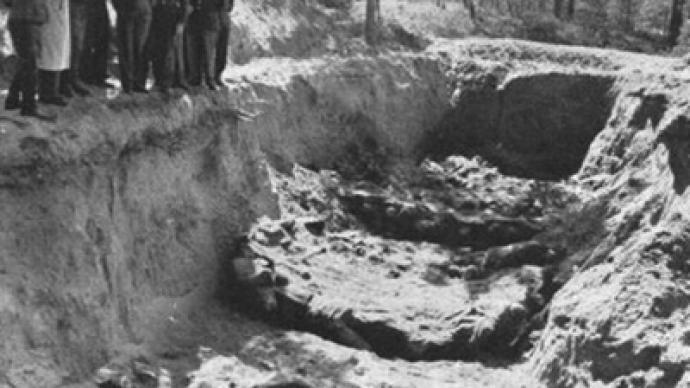Parliament blames Stalin for Katyn massacre

The State Duma, Russia’s lower chamber of parliament, has adopted a statement admitting that the executions of 22,000 Polish citizens near Katyn in the 1940s took place on the direct orders of Josef Stalin and other Soviet leaders.
“The published material, which had for many years been kept in classified archives, not only unveiled the scale of this horrific tragedy but also showed that the Katyn crime was committed on direct orders from Stalin and other Soviet leaders,” said the statement, titled “The Katyn Tragedy and its Victims”. In Soviet times, the atrocities collectively known as the Katyn tragedy were long attributed to the Nazis. It was not until the early 1990s, after the collapse of the Soviet Union that Russia admitted the mass extermination of Polish officers during World War II. The statement by the State Duma expresses “profound sympathy for the victims of the unjustified repressions, their relatives and loved ones.” The Soviet Union’s refusal to accept responsibility for the Katyn massacre soured relations between Moscow and Warsaw for decades, and Friday’s statement has already been hailed a turning point in that relationship.“That criminal act was committed by Stalin and his comrades… Now, in the declaration of the Russian Parliament, we share the sorrow of the Polish people about that event,” said Andrey Klimov, deputy head of the State Duma Foreign Affairs Committee.Poland said the Russian side has shown that the two countries are aiming toward reconciliation and building trust.The document was favored by three factions, United Russia, Fair Russia and the Liberal Democrats. The Communist Party voted against it – last month it called Russia’s official stance on the tragedy “one of the greatest political myths of the 20th Century”. The Communists insist it was the Nazis who performed the executions, and say there is evidence to support their claims. In January next year, Russian President Dmitry Medvedev will take part in a meeting of the Council for Human Rights. There will be two main topics on the agenda: declassifying all Soviet archives relating to repressions and commemorating all victims of the regime, as well as helping survivors and their families













